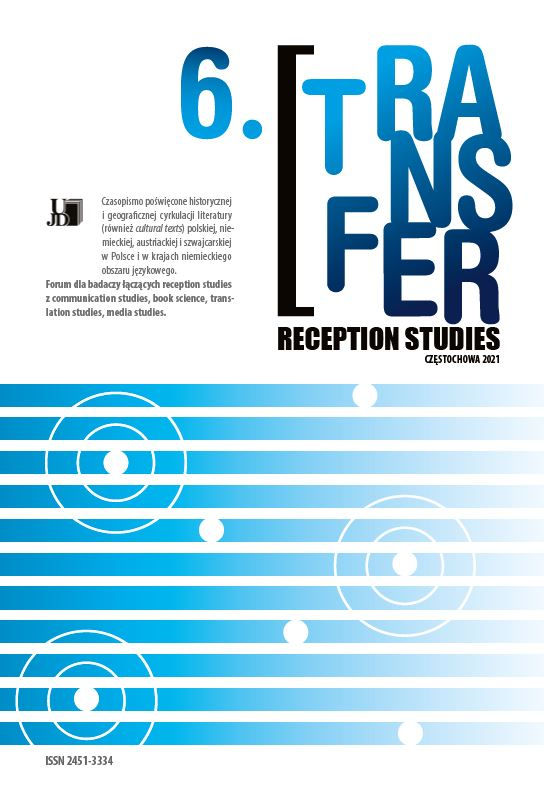Translational Problems in Audio Description.
The Case Study of Django Unchained
by Quentin Tarantino
Translational Problems in Audio Description.
The Case Study of Django Unchained
by Quentin Tarantino
Author(s): Martyna JabłonkaSubject(s): Language and Literature Studies
Published by: Uniwersytet Jana Długosza w Częstochowie
Keywords: audio description; audiovisual translation; Django Unchained; Quentin Tarantino
Summary/Abstract: The main purpose of this paper is to discuss the most common translational problems which occur during the production of audio description (AD), which is one of the modes of audiovisual translation (AVT). The article analyses selected translational problems encountered while scrutinizing the film entitled Django Unchained (2012) by Quentin Tarantino. The analysis is chiefly focused on issues which occur most frequently in the film and seem to be most difficult to solve by audio describers, both in English and in Polish versions of the film. The study compares notions of character description, facial expressions and gestures; these phenomena constitute in fact the core of audio description and particular attention should be paid to accurate rendering of them into the target language. Nonetheless, the article suggests possible strategies of dealing with the above-mentioned obstacles. Proceeding from these considerations, the study proposes conclusions concerning the type of audio description that would probably be the most successful and beneficent to the target audience.
Journal: Transfer. Reception studies
- Issue Year: 6/2021
- Issue No: 1
- Page Range: 175-188
- Page Count: 14
- Language: English

